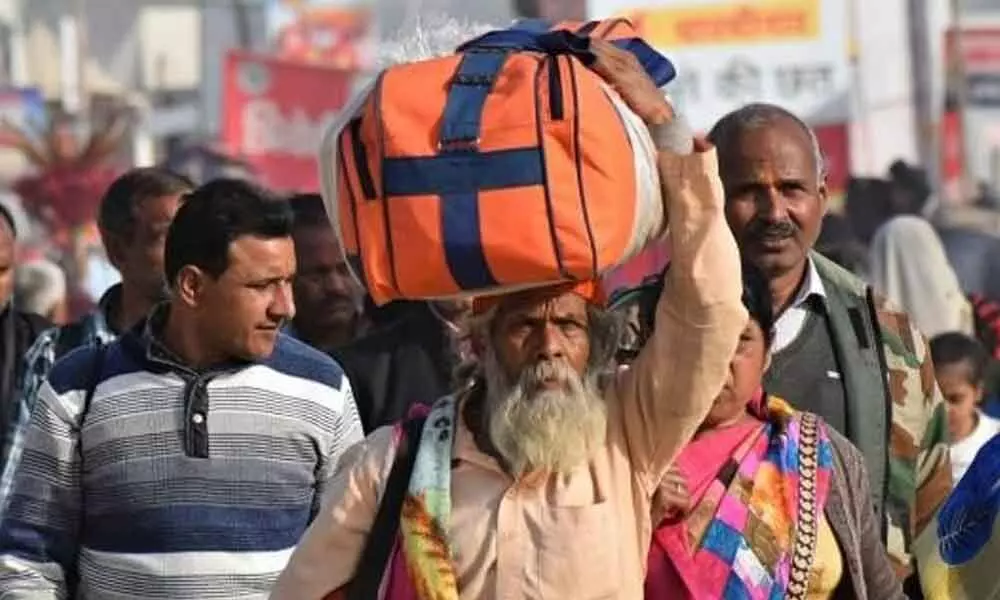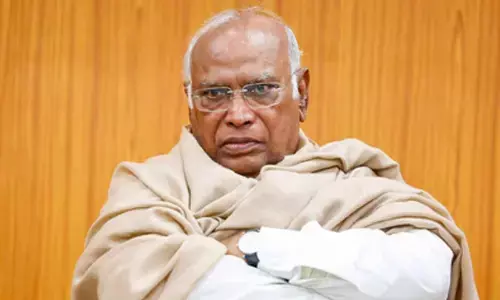Invisible policy fault lines are more by accident

If we don’t wake up now from our collective deep slumber — we perhaps may slip into a deeper comatose of inaction characterised by the abyss of moral depravity and a numbing apathy that will be lethal to the longevity of our collective coexistence and conscience
If we don't wake up now from our collective deep slumber — we perhaps may slip into a deeper comatose of inaction characterised by the abyss of moral depravity and a numbing apathy that will be lethal to the longevity of our collective coexistence and conscience.
At the macro level, interdependencies defining the world were spectacularly punctured, yet this ironically necessitated the coexistence of societies on an even more urgent basis.
Protectionist tendencies and nationalism (with food-nationalism becoming a near term potent threat in the future) — an isolationist tendency that makes us even more inward-looking, to revive and insulate — have possibly reversed all the mobility that ushered in with globalisation.
The idea of the nation-state as envisaged a few hundred years ago is currently the only binding factor as the virus (SARS-CoV-2) threatens the very existence, and cohesion of the porous borders that kept us together.
On the other hand, the impact at the micro-level is nuanced, with the vulnerable being pushed into further deprivation. Consider the impact on the differently abled, sex workers, sanitation workers, women, children, the elderly and the visually handicapped.
One should not forget the vast informal sector of the country: The migrant labourers and the ones with no smartphones who lie at the peripheries of the Digital India dream.
The fractures in public policy always existed: Only, now they are more blatant than ever before. Till date, for instance, there are various estimates of the poverty line.
We still don't have any official record of people classified in the informal sector or why women who don't own land aren't classified, as farmers?
As we see visuals of migrants walking back home in search of basic security of necessities back to their villages, it is ironic the One Nation One Ration Card — making food security accessible to migrant workers — was supposed to be launched around this time.
It is, thus, time for us to decode some of these fissures in policy that have long existed, to plan better for the times ahead.
First, the digital apartheid has never been more conspicuous. While clarion calls were made to facilitate online policy delivery the world over, many among the urban and rural poor don't have 24 / 7 accessibility to post-paid connections and the internet.
Reports emerged discussing how several migrant workers struggled to recharge their phones and charge batteries owing to long hours of walking and sudden uprooting.
Policy concepts such as last-mile delivery have limited meaning as we suddenly go digital in the absence of universal access to technology-driven policy. The dividends of this digital spectacle haven't trickled down fully to those at the margins and are based on the economic privilege of purchasing power, with affordability superseding accessibility.
The vast majority is already plagued with inaccessibility to smart phones, where app downloads — excluding the poor, furthermore — have become an ubiquitous necessity.
Just about how many of them have access to an uninterrupted supply of internet and talktime in the wake of a sudden economic dislocation clubbed with uncertainty?
Several sold their phones to afford onward journeys and ration, according to reports.
The death of 16 migrant workers in Maharashtra's Aurangabad is a telling sign of how directions are not just about global positioning system and Google Maps. Our dependence on technology has made us so cocooned and confined that we ignore the plight of people without access to these aids.
In such a scenario, how can appeals of downloading the Aarogya Setu mobile application or dependency on other apps for online registrations be expected of people with limited access to select technology in a world replete with jargon on the fourth Industrial Revolution?
Every app / online form (even if they are in regional languages) needs digital interfacing and most importantly user-friendliness. These questions need to be explored and addressed to pursue objectives of contract tracing and facilitating travel for those in need.
State governments must immediately think of solutions such as dedicated help desks that will facilitate the outreach of online schemes and a solution for people with no access to smart phones and awareness about operating them.
Second, beyond structural issues, the poor must be in dire need of comforting psychological reassurance in the absence of any personal economic security and social solace. The already alienated farmer and the uprooted labourer may face high risks of depression.
In-person interactions with counsellors and personal psychiatric help away from the idea of the usual helplines / phone numbers must be provided as displacement shocks are sudden and would have left the displaced traumatised.
These human needs must not be limited to only urban India, but also be extended to the 'Bharat' that makes India tick.
Third, COVID-19 also brings to the fore how developmental communication and messaging ignores concerns of the poor that such welfare messaging is designed to include.
Today, almost every immediate communication happens on social media platforms first, something the poor either don't have technological or linguistic access to. This usually happens more by accidental ignorance than by institutional design.
The crisis has brought nudges into the public and private sphere without a timely universal dissemination of messaging. It took weeks to come to the Hindi equivalent of social distancing — doh gaj ki doori (six feet distance).
Imminent neo-liberal behavioural changes such as wearing masks and using sanitisers have made the meaning clear to those of us reading and writing these opinions, but adapting to these changes are hard on many already dealing with economic, social and psychological disruptions.
The shock of these disruptions catapult into incidents like congregations at bus stops, migrants walking along railway tracks who are not aware of trains were moving in the Aurangabad incident. In another isolated incident, a man in Haryana used sanitiser at his home without knowing it was not to be used near a flame.
Such incidents bring attention to the failure of developmental communication trickling down, something proportional to the purchasing and bargaining power of the elite, catering to a select section and ignoring concerns underscored by social stratification.
Messaging, thus, needs to focus on awareness building and must be compassionate to all via different Information Education Communication means, in as many languages as possible right from the start, while also renewing social capital norms.
Fourth, the impact of COVID-19 was so sudden that several logistical challenges were yet to be overcome, including the distribution of wheat — and not atta (flour) — under the public distribution system.
The initial challenges caught governments off guard. There was no availability of sanitary napkins, mounting inventories of handicrafts left artisans and potters with no takers, something that may severely impact the handicraft sector in the coming months and no supply chain support to flower farmers and horticulturists (despite special focus the current government gives to horticulture and crop diversification).
An immediate institutional supply chain must, therefore, be immediately set up to support these farmers and artisans, as it may threaten the prosperity of farmers growing these crops. In Karnataka, for instance, the Indian Postal Service collaborated with Karnataka State Mango Development and Marketing Corporation to protect mango farmers.
Similarly, state governments must work on addressing the concerns of artisans across the country – as we increasingly look inwards to sustain the economy.
Additionally, with summers around, water scarcity will become the next big issue plaguing us. Hand-washing will then be just another luxury to many in the absence of enough potable water. Cooperative federalism needs to step in to plan for these exigencies as well, while we fight the immediacies of public health.
The faultlines have become starker than ever before. Perhaps this is an opportunity to undo all the vulnerabilities globalisation cast on the marginalised.
The 'invisibles' may finally be recognised with dignity and self-respect along with dismantling policy schisms that long plagued inclusive principles of policy, while the brands of swadesi (indigenous) and Make In India are strengthened.
(Courtesy: Down to Earth magazine)




